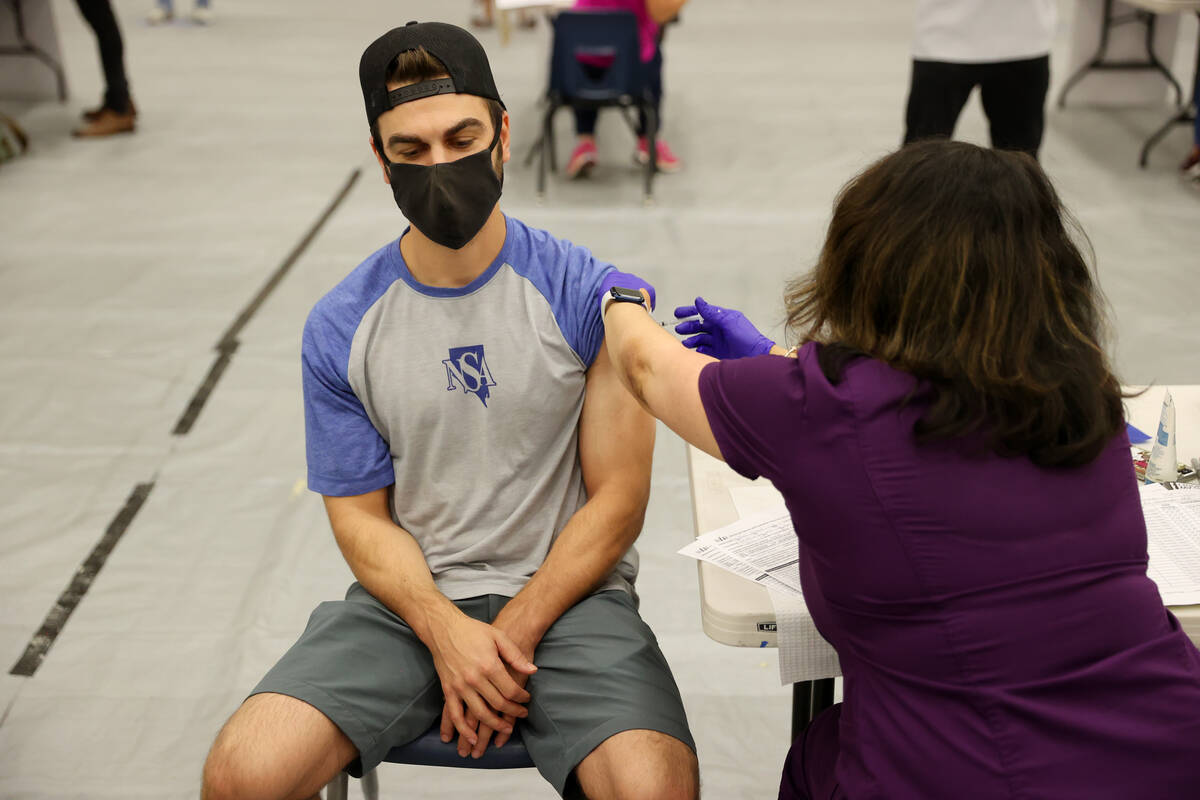Millions missed measles, other vaccines during pandemic
Over the course of the pandemic, millions of Americans have missed their regularly scheduled vaccinations, medical checkups, and health screenings due to COVID-19’s disruption.
A recent report from the Centers for Disease Control and Prevention found that 22 million young children missed their measles vaccinations during the pandemic.
With people trying to get back to normal, Dr. Joseph Iser, a public health specialist who’s worked on immunization campaigns, Hepatitis B research and infectious diseases says it’s important for patients to return to routine doctor’s visits to ensure they’re up to date on vaccinations.
Iser, a board-certified preventive medicine physician with a broad background in public health, primary care, and medical education, acknowleded some remain skeptical on the effectiveness of vaccines. Only 43.7 percent of Nye County received their full COVID-19 vaccinations, compared to more than 65 percent of all Americans, underscoring the concerns of many who choose not to be vaccinated.
Many have simply resisted vaccine mandates from employers, the travel industry and others that require vaccination to return to society.
“When things are mandated, that puts resistance in the forefront of peoples’ minds,” said Iser.
But there is a certain risk that comes with not being vaccinated, he said, urging those who have not been vaccinated to reconsider.
Unvaccinated could lead to potential outbreaks
“Everyone in your community needs to be vaccinated. That’s called herd immunity, where enough people are vaccinated to maintain immunity levels so that if one or two cases come about, it doesn’t affect all of the unvaccinated,” said Iser.
The longer we go without everyone getting vaccinated, the more likely we are to have [these] outbreaks, according to Iser, who said it goes beyond the coronvirus.
Most of those infected in the 2014 measles outbreak at Disneyland were not vaccinated, Iser said.
“My biggest concern is we don’t get children up to date [on their scheduled vaccines] and that yet another outbreak will happen,” said Iser.
How is vaccine hesitancy related to COVID?
According to Iser, some distrust federal agencies tasked with overseeing public health.
“There was one county - which I won’t name - that was going to be given a grant, a large grant, to become its own health district,” said Iser. “But they turned it down because the money was offered by the CDC.
“The [former] head of the FDA goes on TV quite a bit. You’ll see one month she’ll say one thing, and another thing two months later — that’s being transparent,” said Iser.
Iser hopes the public understands when the head of the FDA changed her rhetoric, the science behind the virus had evolved.
“It will take time and transparency to gain back the public’s trust in vaccinations,” he said.
Getting people up to date on vaccinations
A couple of years ago, Iser received funding from the state and took his mobile services van through Nye County, including Pahrump and Tonopah. They are currently putting together a proposal to help Goldfield, and Esmeralda County where there is a lack of doctors.
“I’m hoping to get grants to accommodate those counties in getting up to date with their health needs and vaccinations,” said Iser.
He expects it will take close to six months to a year to get everybody caught up on their vaccinations.
Iser said he will do a specific county-wide assessment.
The Nevada Public Health Institute went to all of the 14 rural counties and assesed public health systems there. The agency offered help from the preventative medicine point of view about what a board of health should know and what a board of health can do.
The data for that information is expected to be released in June.














